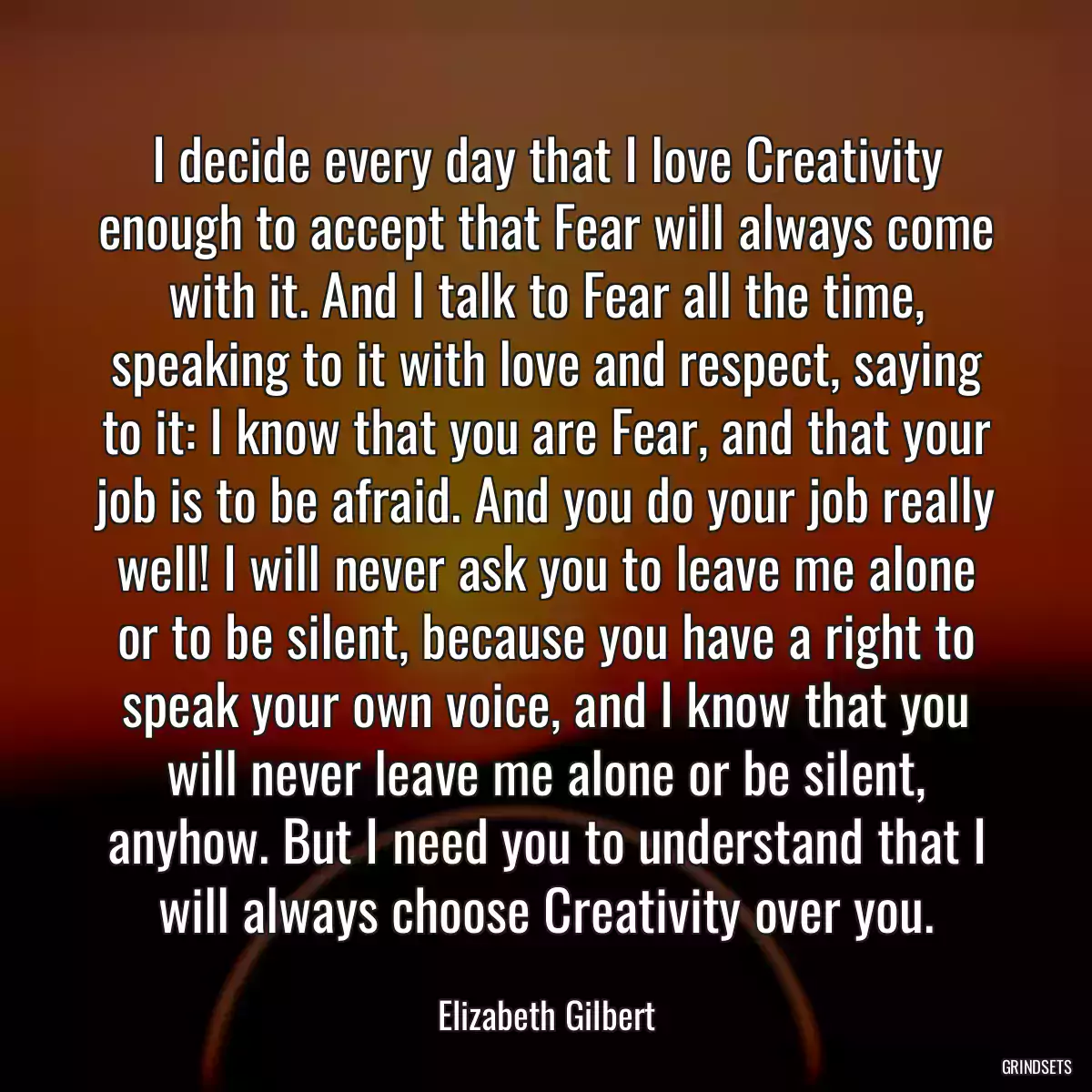
I decide every day that I love Creativity enough to accept that Fear will always come with it. And I talk to Fear all the time, speaking to it with love and respect, saying to it: I know that you are Fear, and that your job is to be afraid. And you do your job really well! I will never ask you to leave me alone or to be silent, because you have a right to speak your own voice, and I know that you will never leave me alone or be silent, anyhow. But I need you to understand that I will always choose Creativity over you.